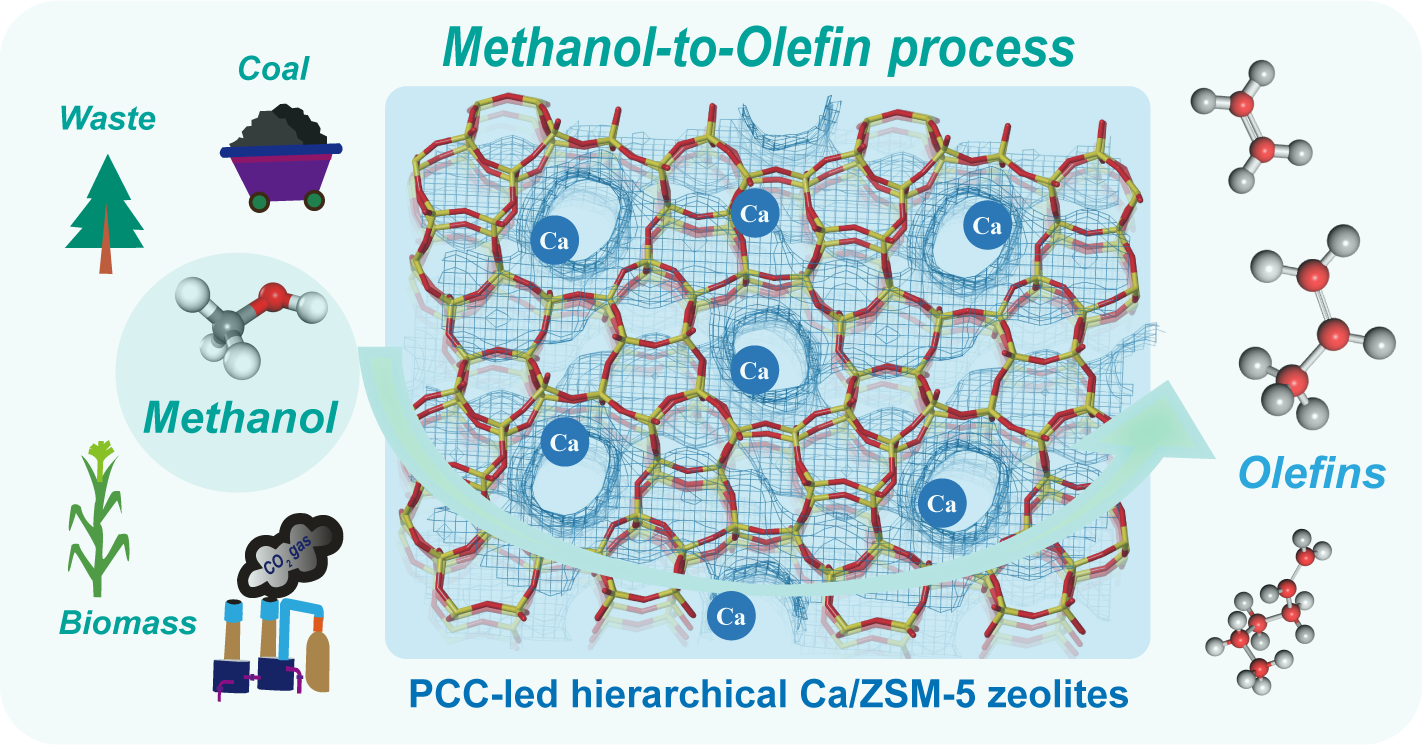
Templates for the synthesis of zeolites
Huimin Luan, Qinming Wu, Jianping Wu, Xiangju Meng*, Feng-Shou Xiao*
Submit a Manuscript
Xinyu You, Xin Zhang, Shican Jiang, Yiru Ye, Lin Gu, Hexun Zhou, Pandong Ma, Jamal Ftouni, Abhishek Dutta Chowdhury*
Chin. J. Struct. Chem., 2024, 43: 100265. DOI: 10.1016/j.cjsc.2024.100265
April 15, 2024
Hierarchical zeolite; Propylene; Precipitated calcium carbonate; Methanol-to-olefins; Characterization
ABSTRACT
In the context of heightened environmental consciousness and the growing demand for light olefins, this study explores the promising future prospects for their sustainable production from renewable resources. Light olefins (especially propylene) are a pivotal constituent of the petrochemical industry, and their demand is poised for steady growth driven by various sectors (e.g., electric mobility, consumer goods and packaging industries), which should not rely solely on traditional petroleum-led routes. Therefore, sustainable pathways, such as the methanol-to-olefin (MTO) process catalyzed by zeolites, are gaining attention. Intending to couple the future olefin demands with the concept of a “methanol economy”, this study investigates the synthesis of hierarchical Ca/ZSM-5 zeolites using a cost-effective approach involving Precipitated Calcium Carbonate (PCC) as a hard template, leading to superior catalytic performance. Comprehensive characterization techniques are employed to elucidate the catalyst's properties, highlighting the dual importance of mesoporosity and calcium species in optimizing its performance. Operando spectroscopy provides in-depth insights into its enhanced anti-coking characteristics. This research contributes to expanding the catalyst toolkit for zeolite-catalyzed MTO processes, focusing on propylene production, thereby addressing the increasing demand for light olefins while promoting sustainability and circular economy principles.






